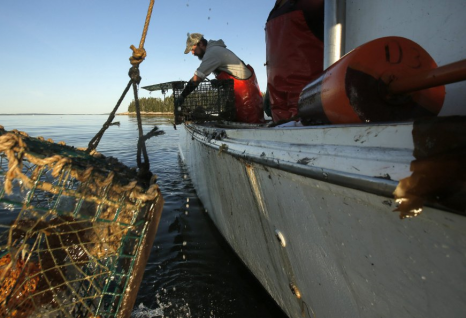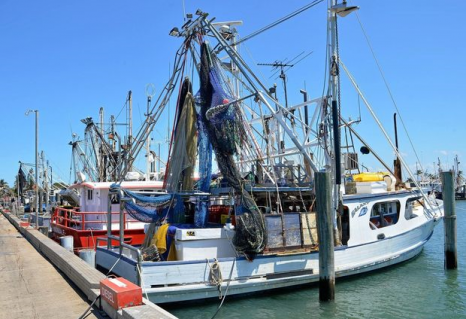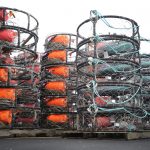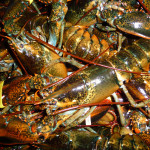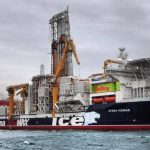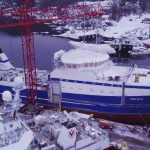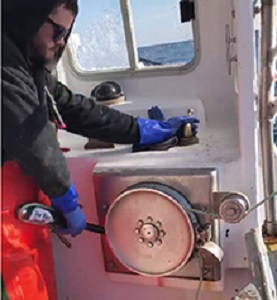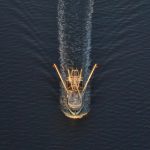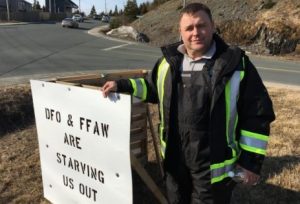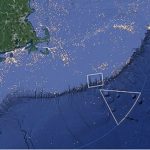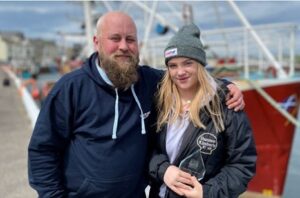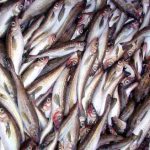Monthly Archives: May 2017
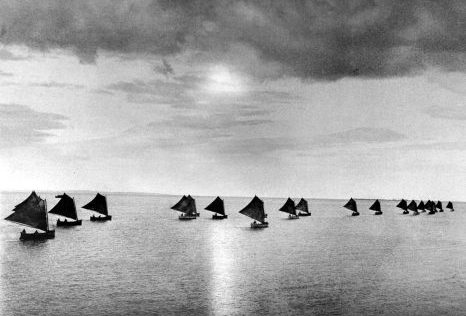
When sailboats ruled Bristol Bay
One hundred and thirty-two years ago, the Bristol Bay commercial fishery began on the shores of the Nushagak River when the first cannery went into operation and canned a little more than 4,000 salmon. Within four years, three more canneries appeared on the Nushagak, and within a decade canneries were built on the Naknek and Kvichak rivers. The dawn of the 20th century saw dozens of canneries around Bristol Bay catching, processing and canning millions of pounds of sockeye salmon every summer. By 1910, Bristol Bay accounted for 40 percent of Alaska’s commercially caught salmon. Even today, Bristol Bay makes up about 40 percent of Alaska’s salmon value. Canneries are large industrial operations. In the early days, coal and steam provided the power to run complex systems of boilers, belt-driven pulleys and winches needed to butcher, cook, can and deliver salmon to the world. But when it came to actually catching fish in Bristol Bay, canneries relied upon the muscle of men and the power of wind. click here for images, and read the story 11:27
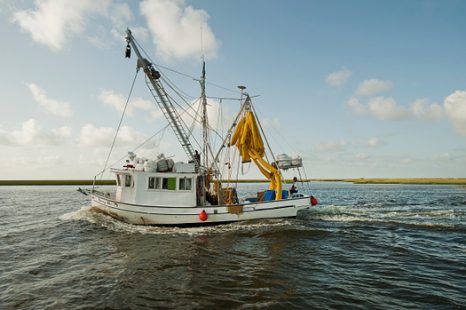
What goes in the water in Wisconsin comes out in the Gulf of Mexico
A group of farmers in southwestern Wisconsin’s Driftless Area has become acutely aware that what gets into the watershed here can wind up hundreds of miles away. These farmers use conservation practices to keep nutrients on their land and out of lakes and streams. Margaret Krome, policy program director at the Michael Fields Agricultural Institute, says nutrients that get into the water here follow a direct path down the Mississippi River. “Those nutrients go shooshing right out into the Gulf of Mexico and create a zone with such high nutrients that they end up with a big algal bloom, and that sucks all the oxygen out of the water and kills other organisms,” she explains. “So it’s a dead zone because fishermen can’t fish there.” The Wisconsin farmers have developed a relationship with Gulf fishermen, who are appreciative of the farmers’ efforts to help improve fishing conditions in the Gulf. click here to read the story 10:52
Bad salmon run hints at trouble ahead
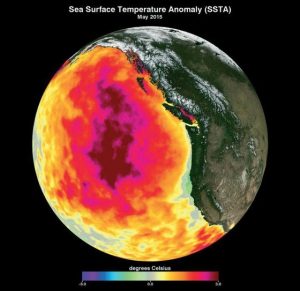 Count backward three years and we come to 2014 — precursor to this spring’s extremely poor salmon returns. Fewer than 20,000 adult spring Chinook and about 1,500 immature jacks have been counted at Bonneville Dam, compared to 10-year averages of about 127,000 and 17,000. Shad, another species that should begin surging toward inland spawning grounds about now, reached a count of 26 at Bonneville late last week, compared to the 10-year average of more than 11,000. In the case of Chinook, actual returns may not be quite so bleak as the dam count indicates. Heavy mountain runoff has made the Columbia’s water cloudy and cold. Test fisheries found quite a few Chinook loitering here in the estuary, delaying their swim upstream. But with the start of summer only a month away, there isn’t much time left for the spring run to come through. If they don’t make it to spawning grounds, the run three years from now also will be weak. click here to read the op-ed 09:36
Count backward three years and we come to 2014 — precursor to this spring’s extremely poor salmon returns. Fewer than 20,000 adult spring Chinook and about 1,500 immature jacks have been counted at Bonneville Dam, compared to 10-year averages of about 127,000 and 17,000. Shad, another species that should begin surging toward inland spawning grounds about now, reached a count of 26 at Bonneville late last week, compared to the 10-year average of more than 11,000. In the case of Chinook, actual returns may not be quite so bleak as the dam count indicates. Heavy mountain runoff has made the Columbia’s water cloudy and cold. Test fisheries found quite a few Chinook loitering here in the estuary, delaying their swim upstream. But with the start of summer only a month away, there isn’t much time left for the spring run to come through. If they don’t make it to spawning grounds, the run three years from now also will be weak. click here to read the op-ed 09:36
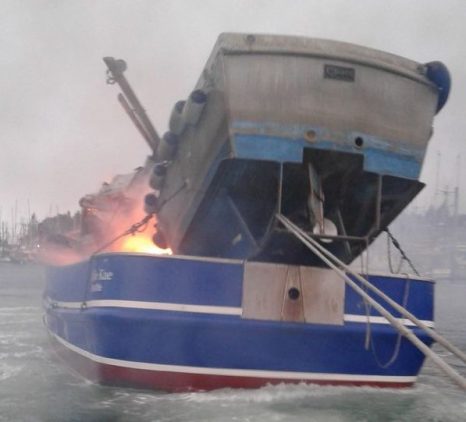
Three commercial fishing boats burn in Southeast Alaska marina fire
The U.S. Coast Guard is investigating a fire that burned three commercial fishing boats at a Southeast Alaska marina early Sunday morning. Fire was reported aboard the 57-foot Seaborn, 56-foot Pacific Lady and 49-foot Julia Kae at about 3:30 a.m. Sunday, the Coast Guard said in a statement. The three boats — two of them steel-hulled seiners, the third fiberglass — were tied to each other at the North Cove harbor in Craig, Harbormaster Hans Hjort said Sunday. People living on vessels in the harbor first alerted authorities of the fire, he said. Craig and Klawock volunteer firefighters worked to extinguish the flames. Click here to read the story 08:17
Three-vessel fire under investigation – click here for more images 12:25
Coast Guard investigates a 3 vessel fire in Craig, Alaska
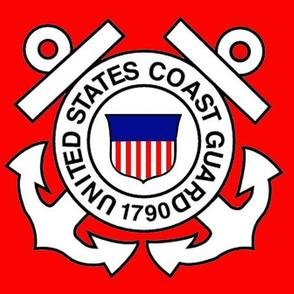 The Coast Guard is investigating a three-vessel fire aboard the 57-foot fishing vessel Seaborn, 56-foot fishing vessel Pacific Lady and the 49-foot fishing vessel Julia Kae, at a marina in North Cove in Craig, Alaska. The Craig harbormaster and fire department have contained the fire. Marine Safety Detachment Ketchikan investigators are responding to monitor for signs of pollution, investigate the cause of the incident and assess extent and cost of damage. Coast Guard Sector Juneau was notified early this morning about the fire that occurred at approximately 3:30 a.m. The Pacific Lady has a max capacity of 1,500 gallons of fuel, the Julia Kae has a max capacity of 3,800 gallons of fuel and the Seaborn has a max capacity of 2,000 gallons of fuel. Sheening appears to be minimal, but boom has been deployed around two of the vessels.There were no injuries reported. The cause of the fire is unknown at this time. USCG 19:17
The Coast Guard is investigating a three-vessel fire aboard the 57-foot fishing vessel Seaborn, 56-foot fishing vessel Pacific Lady and the 49-foot fishing vessel Julia Kae, at a marina in North Cove in Craig, Alaska. The Craig harbormaster and fire department have contained the fire. Marine Safety Detachment Ketchikan investigators are responding to monitor for signs of pollution, investigate the cause of the incident and assess extent and cost of damage. Coast Guard Sector Juneau was notified early this morning about the fire that occurred at approximately 3:30 a.m. The Pacific Lady has a max capacity of 1,500 gallons of fuel, the Julia Kae has a max capacity of 3,800 gallons of fuel and the Seaborn has a max capacity of 2,000 gallons of fuel. Sheening appears to be minimal, but boom has been deployed around two of the vessels.There were no injuries reported. The cause of the fire is unknown at this time. USCG 19:17
Golden fish
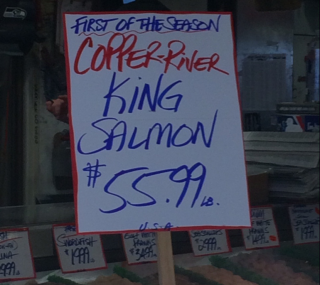 Update: This story was updated on May 21, 2017 to include new prices. In economic crisis, there is often opportunity. Commercial fishermen in Cordova, Alaska are at the moment worrying mightily about what the rest of their fishing season will bring given the prediction of a record weak-return of Copper River king season. But what the ocean gods have brought so far are sky-high prices for a higher than expected catch of a thought-to-be struggling run of fish. The first, 12-hour opening of the season was expected to result in the harvest of only a few hundred kings given a prediction of a weak return and fishing-area closures the Alaska Department of Fish and Game ordered to protect areas where kings have usually been caught in the past. Despite those closures, however, fishermen caught almost 1,900 of the big fish, a catch bigger than in last year’s opener. Most fishermen in the Cordova fleet of 500 gillnetters were reported to be getting dock prices of $10.30 per pound for king, but some were doing much better. click here to read the story 18:20
Update: This story was updated on May 21, 2017 to include new prices. In economic crisis, there is often opportunity. Commercial fishermen in Cordova, Alaska are at the moment worrying mightily about what the rest of their fishing season will bring given the prediction of a record weak-return of Copper River king season. But what the ocean gods have brought so far are sky-high prices for a higher than expected catch of a thought-to-be struggling run of fish. The first, 12-hour opening of the season was expected to result in the harvest of only a few hundred kings given a prediction of a weak return and fishing-area closures the Alaska Department of Fish and Game ordered to protect areas where kings have usually been caught in the past. Despite those closures, however, fishermen caught almost 1,900 of the big fish, a catch bigger than in last year’s opener. Most fishermen in the Cordova fleet of 500 gillnetters were reported to be getting dock prices of $10.30 per pound for king, but some were doing much better. click here to read the story 18:20
Letter: Taking stock of cod stock assessments
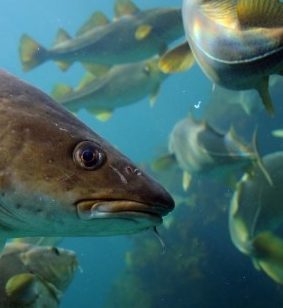 In a Telegram letter published May 6, (“Perfectly good fisheries data being ignored,” click here ) Harvey Jarvis criticized the Department of Fisheries and Oceans’ assessments of northern cod and 3Ps (i.e. south coast) cod. Based on my 20-plus years of experience with stock assessments in Newfoundland and Labrador and other regions (Canada, the U.S., and Europe), I think Jarvis is absolutely correct about the 3Ps cod assessment, but he is incorrect about the new northern cod assessment framework that DFO adopted in 2016. Jarvis suggested that the only information used in the northern cod assessment model to estimate stock biomass is the DFO research vessel survey index. He indicated that the commercial catch, the commercial logbook data and the cod sentinel catch rate indices are not used. This is not true. The 2016 northern cod stock assessment used a state-of-the-art model,,, click here to read the letter 17:23
In a Telegram letter published May 6, (“Perfectly good fisheries data being ignored,” click here ) Harvey Jarvis criticized the Department of Fisheries and Oceans’ assessments of northern cod and 3Ps (i.e. south coast) cod. Based on my 20-plus years of experience with stock assessments in Newfoundland and Labrador and other regions (Canada, the U.S., and Europe), I think Jarvis is absolutely correct about the 3Ps cod assessment, but he is incorrect about the new northern cod assessment framework that DFO adopted in 2016. Jarvis suggested that the only information used in the northern cod assessment model to estimate stock biomass is the DFO research vessel survey index. He indicated that the commercial catch, the commercial logbook data and the cod sentinel catch rate indices are not used. This is not true. The 2016 northern cod stock assessment used a state-of-the-art model,,, click here to read the letter 17:23
Coast Guard medevacs fisherman 145 miles east of Cape Cod
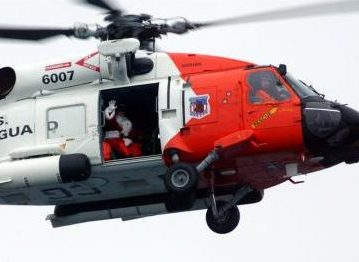 A Coast Guard Air Station Cape Cod aircrew medevaced an ill fisherman Saturday evening from 145 miles off the coast of Cape Cod. At around 7:30 p.m., the captain of the 78-foot fishing vessel Little Tootie notified the First District command center that one of his crewmembers was having respiratory troubles. An MH-60 Jayhawk helicopter crew launched and arrived on scene at around 10:30 p.m. Once on scene, the crew hoisted the fisherman to the helicopter. The fisherman was then flown to Air Station Cape Cod where emergency medical services personnel were waiting to transport the 44-year-old man to Falmouth Hospital. The Little Tootie is a scalloper homeported out of Newport News, Virginia. USCG 15:31
A Coast Guard Air Station Cape Cod aircrew medevaced an ill fisherman Saturday evening from 145 miles off the coast of Cape Cod. At around 7:30 p.m., the captain of the 78-foot fishing vessel Little Tootie notified the First District command center that one of his crewmembers was having respiratory troubles. An MH-60 Jayhawk helicopter crew launched and arrived on scene at around 10:30 p.m. Once on scene, the crew hoisted the fisherman to the helicopter. The fisherman was then flown to Air Station Cape Cod where emergency medical services personnel were waiting to transport the 44-year-old man to Falmouth Hospital. The Little Tootie is a scalloper homeported out of Newport News, Virginia. USCG 15:31
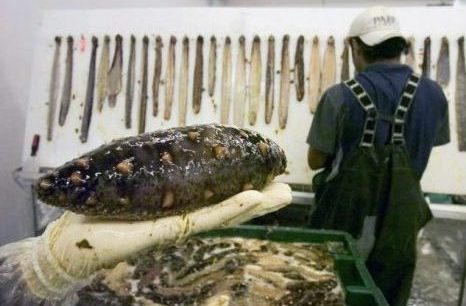
Father and Son Busted With More Than $17M in Sea Cucumbers
A father and son have been indicted on charges of smuggling illegally harvested sea cucumbers worth more than $17 million into the United States and selling the Chinese delicacy on Asian markets. Depending on the species, sea cucumbers can go for as much as $300 a pound in China and Hong Kong, authorities say. Ramon Torres Mayorquin and his son, David Mayorquin, were charged in federal court in San Diego of conspiracy, false labeling and unlawful importation of wildlife, according to The San Diego Union-Tribune. Their company, Blessings Inc. of Tucson, Arizona, was also charged. Between 2010 and 2012, the family knowingly agreed to purchase roughly $13 million worth of illicitly harvested sea cucumbers from poachers operating off the Yucatan Peninsula, according to the indictment filed Wednesday. They then allegedly imported the product and sold it to Asian markets for about $17.5 million. Click here to read the story 11:23
Washington State loses major legal battle, might pay up to $2B to save salmon
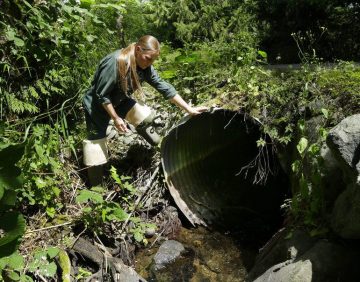 Washington state lost a major legal battle Friday, which could force it spend nearly $2 billion to restore salmon habitat by removing barriers that block fish migration. A panel of the 9th U.S. Circuit Court of Appeals last year affirmed a lower court’s 2013 ruling ordering the state to fix or replace hundreds of culverts — large pipes that allow streams to pass beneath roads but block migrating salmon. Idaho and Montana joined Washington state in asking the appeals court to reconsider the case. The court declined to do so Friday, but several judges dissented from that decision, saying it should be reconsidered because of its significance. “This is a win for salmon, treaty rights and everyone who lives here,” Lorraine Loomis, chair of the Northwest Indian Fisheries Commission, said in a statement. The group represents 21 tribes in western Washington that challenged the state over the culverts in 2001, part of decades-long litigation over tribal fishing rights. click here to read the story 10:34
Washington state lost a major legal battle Friday, which could force it spend nearly $2 billion to restore salmon habitat by removing barriers that block fish migration. A panel of the 9th U.S. Circuit Court of Appeals last year affirmed a lower court’s 2013 ruling ordering the state to fix or replace hundreds of culverts — large pipes that allow streams to pass beneath roads but block migrating salmon. Idaho and Montana joined Washington state in asking the appeals court to reconsider the case. The court declined to do so Friday, but several judges dissented from that decision, saying it should be reconsidered because of its significance. “This is a win for salmon, treaty rights and everyone who lives here,” Lorraine Loomis, chair of the Northwest Indian Fisheries Commission, said in a statement. The group represents 21 tribes in western Washington that challenged the state over the culverts in 2001, part of decades-long litigation over tribal fishing rights. click here to read the story 10:34
Sea lion drags young girl into water at Richmond’s Steveston Wharf
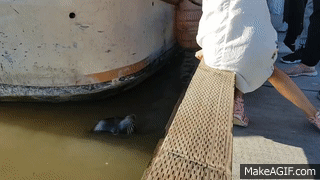 A sea lion was captured on video dragging a young girl into the water at Richmond’s Steveston Fisherman Wharf. In the video, which was posted to Youtube by Vancouver’s Michael Fujiwara, the sea lion surfaces near the dock, and swims about looking harmless. No doubt it was drawn by the fish — this is an area, after all, that was once nicknamed Salmonopolis. But after surveying the area and discovering no fish, the sea lion surprises everyone by approaching a young girl, then suddenly, biting down on her dress and dragging her backwards into the water. click here to read the story, video 09:05
A sea lion was captured on video dragging a young girl into the water at Richmond’s Steveston Fisherman Wharf. In the video, which was posted to Youtube by Vancouver’s Michael Fujiwara, the sea lion surfaces near the dock, and swims about looking harmless. No doubt it was drawn by the fish — this is an area, after all, that was once nicknamed Salmonopolis. But after surveying the area and discovering no fish, the sea lion surprises everyone by approaching a young girl, then suddenly, biting down on her dress and dragging her backwards into the water. click here to read the story, video 09:05
Offshore exploration and drilling back on table for Georgia
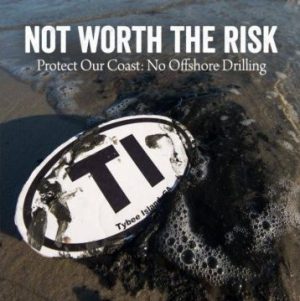 The Trump administration announced earlier this month that it is moving forward on seismic surveys in the Atlantic Ocean, the first step toward offshore drilling in a region where it has been blocked for decades. The Interior Department plans to review six applications by energy companies that were rejected in January by the Obama administration. Local and state environmental groups as well as many coastal municipalities oppose the surveys, saying loud sounds from seismic air guns could hurt marine life. Sen. David Perdue, R-Georgia, and Rep. Buddy Carter, R-Savannah, remain in favor of seismic testing and offshore drilling. “With a vibrant commercial fishery industry and the only known calving ground for endangered North Atlantic right whales just off our coast, Georgians oppose seismic testing for offshore oil exploration and the risks it poses to our state’s wildlife, wild places, and quality of life,” said Alice Keyes, vice president for coastal conservation at Coastal Georgia-based One Hundred Miles. Click here to read the story 19:19
The Trump administration announced earlier this month that it is moving forward on seismic surveys in the Atlantic Ocean, the first step toward offshore drilling in a region where it has been blocked for decades. The Interior Department plans to review six applications by energy companies that were rejected in January by the Obama administration. Local and state environmental groups as well as many coastal municipalities oppose the surveys, saying loud sounds from seismic air guns could hurt marine life. Sen. David Perdue, R-Georgia, and Rep. Buddy Carter, R-Savannah, remain in favor of seismic testing and offshore drilling. “With a vibrant commercial fishery industry and the only known calving ground for endangered North Atlantic right whales just off our coast, Georgians oppose seismic testing for offshore oil exploration and the risks it poses to our state’s wildlife, wild places, and quality of life,” said Alice Keyes, vice president for coastal conservation at Coastal Georgia-based One Hundred Miles. Click here to read the story 19:19
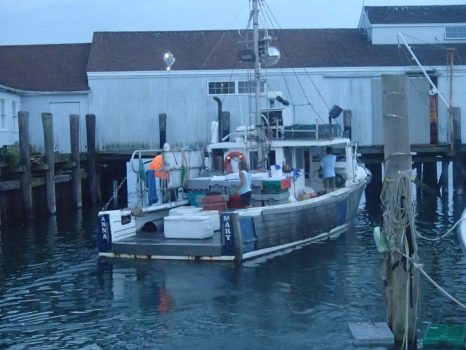
‘A Speck in the Sea’ tells tale of boyhood pals’ brush with death on Long Island fishing excursion
After more than 10 hours in the frigid ocean 40 miles south of Montauk Point, John Aldridge didn’t know if there was any fight left in him. It was at that moment when the cruel sea taunted him with salvation — only to snatch it away. No more than 400 yards away he spied the Anna Mary, his lobster boat, the one he’d tumbled overboard from in the wee hours of the night. His crewmate Mike Migliaccio stood on the roof, binoculars plastered to his face, desperately scanning the sea. Migliaccio was a man possessed. He knew Aldridge’s time was running out. How was it possible Mike didn’t see him? Aldridge had spent all his energy affixing himself to a colorful buoy. But the ocean’s glare hid Aldridge from sight and the Anna Mary steamed away. “A Speck in the Sea” is the personally narrated account of Aldridge and his partner Anthony Sosinski about July 24, 2013, a day the unthinkable happened. click here to read the story 14:17
Company to boost Kotzebue summer chum operation
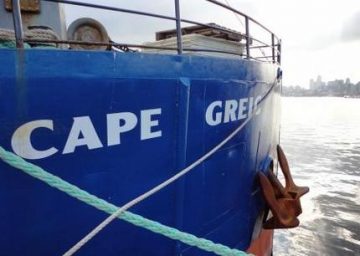 Following a slim couple of years, the summer Arctic keta, or chum, fishery in Kotzebue should see a significant boost this summer. Seattle-based E&E Foods, which runs both land-based and vessel operations in Bristol Bay, Southeast, and the Kenai Peninsula, plans to bring its floating processor to the waters outside of town this summer. “I feel really good about this opportunity where they’re going to be able to have a volume fishery now, and not have the limitations that they’ve had with a pure buy-and-fly-type fishery,” said Roger Stiles, business manager for the company’s Southcentral operations. E&E Foods is already planning to send its floating processor, the Cape Greig, to Bristol Bay for the area’s lucrative summer season. It will be accompanied by the freighter Sea Bird and combined, the two vessels have a carrying capacity of 1.2 million pounds of frozen finished product, Stiles said. After that seasons winds down at the end of July, the two boats will head up to Kotzebue and set up shop for the keta harvest, starting Aug. 1. Click here to read the story 13:27
Following a slim couple of years, the summer Arctic keta, or chum, fishery in Kotzebue should see a significant boost this summer. Seattle-based E&E Foods, which runs both land-based and vessel operations in Bristol Bay, Southeast, and the Kenai Peninsula, plans to bring its floating processor to the waters outside of town this summer. “I feel really good about this opportunity where they’re going to be able to have a volume fishery now, and not have the limitations that they’ve had with a pure buy-and-fly-type fishery,” said Roger Stiles, business manager for the company’s Southcentral operations. E&E Foods is already planning to send its floating processor, the Cape Greig, to Bristol Bay for the area’s lucrative summer season. It will be accompanied by the freighter Sea Bird and combined, the two vessels have a carrying capacity of 1.2 million pounds of frozen finished product, Stiles said. After that seasons winds down at the end of July, the two boats will head up to Kotzebue and set up shop for the keta harvest, starting Aug. 1. Click here to read the story 13:27
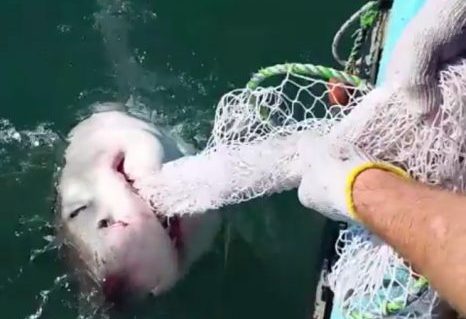
This Guy Bickering With A Shark Is The Most Australian Thing Ever
There are a whole bunch of animals out there that if I came up against them in the wild, I would just let them do whatever they wanted as there would be absolutely no way I would be beating them at anything. That’s the law of the jungle baby and number one on that list of animals is probably a shark. Those vicious fuckers will kill you without a second thought by ripping off your body parts so there’s no way I would want to mess with them if I ever met one. I’m not an Australian fisherman though. The guy in the video below got involved in a tug of war with a shark over his fishing net and let’s just put it this way – there was no way he was going to lose that fishing net: Click here to watch the video!
Fishermen want the hardest Brexit deal they can get
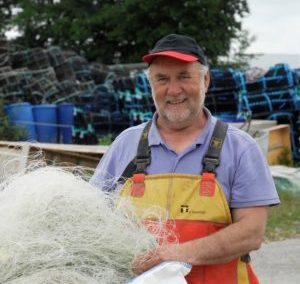 Graham Doswell is in optimistic form as he unloads netfulls of lobster, crab, sprat, white bait and a solitary plaice after a hard days fishing off the coast of Eastbourne. Like the vast majority of fishermen, he voted for Brexit and believes his industry will be much better off outside the EU. “Brexit is a breath of fresh air. A lot of fishermen are hanging on by the skin of their teeth or have given up altogether because the EU has made it so they can’t make ends meet,” Doswell told i, standing by his boat, the Halcyon, in Fishermen’s Quay two miles north of the Eastbourne Pier. “The EU has knocked the stuffing out of the fishing industry by giving us only a tiny bit of the fish in our waters but it now has a fantastic opportunity to pull itself back from the brink. If we make a good job of it now, there is so much hope,” said Doswell, a third-generation fisherman. click here to read the story 10:30
Graham Doswell is in optimistic form as he unloads netfulls of lobster, crab, sprat, white bait and a solitary plaice after a hard days fishing off the coast of Eastbourne. Like the vast majority of fishermen, he voted for Brexit and believes his industry will be much better off outside the EU. “Brexit is a breath of fresh air. A lot of fishermen are hanging on by the skin of their teeth or have given up altogether because the EU has made it so they can’t make ends meet,” Doswell told i, standing by his boat, the Halcyon, in Fishermen’s Quay two miles north of the Eastbourne Pier. “The EU has knocked the stuffing out of the fishing industry by giving us only a tiny bit of the fish in our waters but it now has a fantastic opportunity to pull itself back from the brink. If we make a good job of it now, there is so much hope,” said Doswell, a third-generation fisherman. click here to read the story 10:30
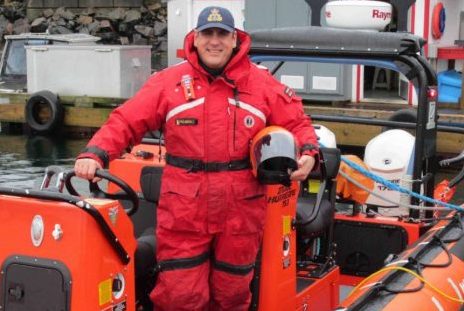
A coast guard vet raced to save freezing fishermen: ‘I remember my friggin’ heart pounding’
Alone in the darkness, eyes frozen shut, ice cracking off him with each step and a wind howling so viciously it repeatedly knocked him to the ground, an unfamiliar anxiety washed over Leslie Palmer. He’d had more than 20 years with the Canadian Coast Guard, some 700 rescues already to his credit, but this one was different. Palmer felt he was the one in peril. As he trudged along the shore of one of British Columbia’s northern islands, over a treacherous terrain of rock outcrops glazed in sheer ice, his goal was to reach the beached crew of a shrimp boat. The Larissa had emitted a distress signal hours earlier as it capsized in 185 km/h winds. It wasn’t certain there were survivors. Click here to read the story 08:51
‘I was thinking I will just die there:’ Fishermen caught in Acadian Peninsula storm
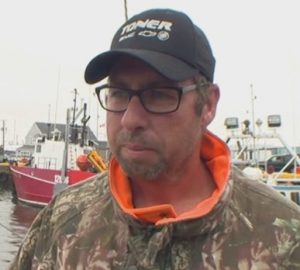 During the worst of the storm, Christian Duguay wasn’t sure if he’d survive the night. In his 25 years as a lobster and crab fisherman, he’s never experienced a storm like the one that hit the Acadian Peninsula on Thursday night. Duguay was fishing off Lamèque Island with three of his crew when the wind picked up. They saw tornadoes on the water, he said. The first one “got the boat,” he said. “She lifted everything in the boat, all the things and the cover on my big box there, just go right away with the tornado.” He said the boat stopped dead in the water, and then the water came up around them. At one point, the waves were one and a half metres high. He’s still not sure how the boat didn’t sink. click here to read the story 18:45
During the worst of the storm, Christian Duguay wasn’t sure if he’d survive the night. In his 25 years as a lobster and crab fisherman, he’s never experienced a storm like the one that hit the Acadian Peninsula on Thursday night. Duguay was fishing off Lamèque Island with three of his crew when the wind picked up. They saw tornadoes on the water, he said. The first one “got the boat,” he said. “She lifted everything in the boat, all the things and the cover on my big box there, just go right away with the tornado.” He said the boat stopped dead in the water, and then the water came up around them. At one point, the waves were one and a half metres high. He’s still not sure how the boat didn’t sink. click here to read the story 18:45
N.B. island cut off from mainland due to thunderstorm – More than 4,100 NB Power customers remained without power Friday evening after a violent thunderstorm ripped through the Acadian Peninsula the previous night. At its peak, close to 7,000 NB Power customers in the province were without power. There are no reports of injuries or fatalities. click here to read the story, video 11:20 5/20/2017
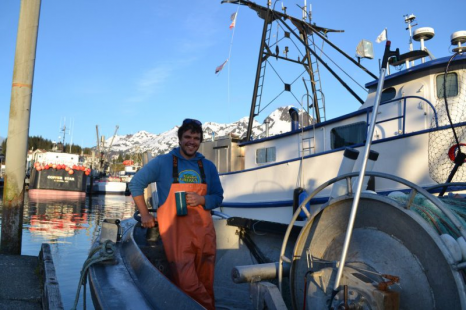
Millennial fishermen and women carry out an Alaska state tradition on the Copper River Delta
Cordova is only accessible by boat or plane. It’s a place where neighbors take care of one another, all united by passion for their community and the land they call home. This humble town is home to a world-class fishery: the Copper River. Like most things in Cordova, the salmon fishery is largely independent, and the operation is as local as the shops and restaurants that line Main Street. More than 540 independent boats fish for Copper River salmon each year. These boats, known as bow pickers, are manned by one to two fishermen who cast their nets over the bow and then hand-pick the salmon off as they reel the net in. Nets stretch 900 feet long and are mended by hand. And, many of those boats are owned by increasingly younger generations of fishermen and women. Click here to read the story 16:57
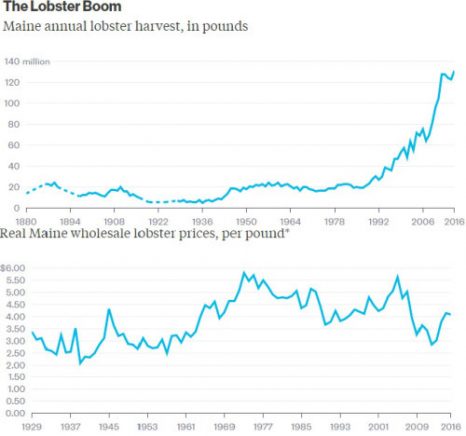
Maine Is Drowning in Lobsters – The market is booming, but it’s not making anybody rich
In his famous 1968 essay “The Tragedy of the Commons,” biologist Garrett Hardin singled out ocean fishing as a prime example of self-interested individuals short-sightedly depleting shared resource.,, Then there’s the Maine lobster. As University of Maine anthropologist James M. Acheson put it in his 2003 book “Capturing the Commons: Devising Institutions to Manage the Maine Lobster Industry”. Since the late 1980s, catches have been at record-high levels despite decades of intense exploitation. We have never produced so many lobsters. Even more interesting to managers is the fact that catch levels remained relatively stable from 1947 to the late 1980s. While scientists do not agree on the reason for these high catches, there is a growing consensus that they are due, in some measure, to the long history of effective regulations that the lobster industry has played a key role in developing. Click here to read the article 15:42
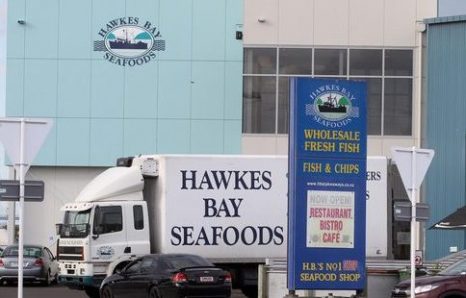
Hawke’s Bay Seafoods on trial over alleged under-reporting of catches
Dozens of fishing catch returns and other documents are alleged to have been falsified by Napier company Hawke’s Bay Seafoods, a judge has been told at the start of an expected four-month trial in the District Court at Wellington. The trial started before Judge Bill Hastings yesterday, with Ministry for Primary Industries prosecutor Stephanie Bishop saying there was deliberate and wide-reaching under-reporting of catches over about two years. Ms Bishop alleged offences were orchestrated “from the top” and the necessary skippers’ collusion was gained by cash payments and continued employment. Catches totalling up to 63 tonnes of bluenose and 3.5 tonnes of trumpeter were involved, motivated by a lack of catch entitlement and prospects of export market advantages. Charges involve mainly two types of offence, with false statements on catch-return records and selling fish not properly reported to MPI. click here to read the story 14:49
A nice note to the Fishermen of Flotilla 2017 from Sargeant Steven Stanko
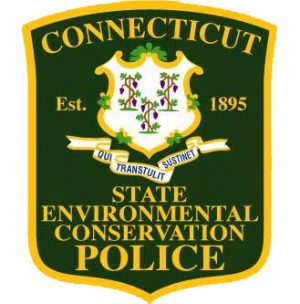 Hello all, I want to take a moment and express my sincere admiration as to the professionalism the fishermen/women at the event displayed. As the supervisor on scene for CT Encon Police I witnessed firsthand the interaction that took place between the fishing vessel captains and crew involved in the event had with not only my department, but with the United States Coast Guard, and other commercial/civilian craft in the area. Communication on the radio, as well as by phone, with vessel captains was first rate. As an event planner and coordinator that is responsible for public safety I must say that all those involved made the event much easier and less stressful for me to supervisor. In fact, it was a pleasure. The skills of the captains in handling numerous large vessels in constrained waterways was exemplary of the nautical experience they possess. click here to read the letter 12:52
Hello all, I want to take a moment and express my sincere admiration as to the professionalism the fishermen/women at the event displayed. As the supervisor on scene for CT Encon Police I witnessed firsthand the interaction that took place between the fishing vessel captains and crew involved in the event had with not only my department, but with the United States Coast Guard, and other commercial/civilian craft in the area. Communication on the radio, as well as by phone, with vessel captains was first rate. As an event planner and coordinator that is responsible for public safety I must say that all those involved made the event much easier and less stressful for me to supervisor. In fact, it was a pleasure. The skills of the captains in handling numerous large vessels in constrained waterways was exemplary of the nautical experience they possess. click here to read the letter 12:52
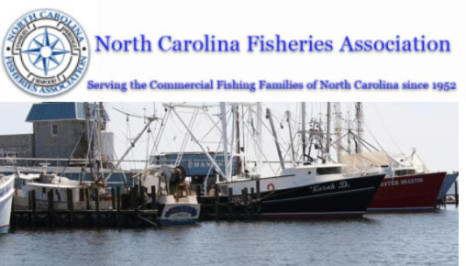
North Carolina Fisheries Association Weekly Update for May 19, 2017
SOUTHERN FLOUNDER LAWSUIT SETTLED! Click here to read the Weekly Update, to read all the updates, Click here 11:50
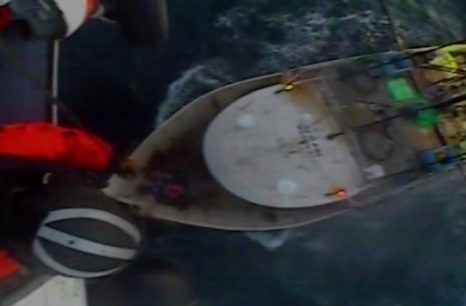
Coast Guard medevacs injured fisherman 86 miles east of Cape Cod
A Coast Guard Air Station Cape Cod aircrew medevaced an injured fisherman Thursday evening from 86 miles off the coast of Cape Cod. At around 5 p.m., the captain of the 75-foot fishing vessel Destiny notified First District command center watchstanders that one of his crewmembers had fallen and sustained injuries to his hand and ribs. An MH-60 Jayhawk helicopter crew launched and arrived on scene at around 8 p.m. Once on scene, the crew used a basket to hoist the fisherman to the helicopter. The fisherman was then flown to Air Station Cape Cod where emergency medical services personnel were waiting to transport the 54-year-old man to Falmouth Hospital. The Destiny is homeported out of New Bedford. Click here for video 11:36

The Wild West of Deep-Sea Mining
In the coming years, a new gold rush will begin. Deep beneath the ocean’s waves, from scalding hydrothermal vents to the frigid stretches of the abyssal plain, ocean processes have deposited vast quantities of valuable minerals on the seafloor. Now, the convergence of technological development and political will has placed this ore within reach. But like the gold rushes of old, the deep-sea-mining industry is emerging on the frontiers of society, far from legislatures and law enforcement. Officially, the nascent deep-sea-mining industry is governed by the International Seabed Authority (ISA), a nongovernmental organization established in 1996 by the United Nations Convention on the Law of the Sea (UNCLOS). The authority’s critical task is to coordinate its 168 member nations in establishing and enforcing regulations for the developing deep-sea-mining industry. click here to read the article 10:24
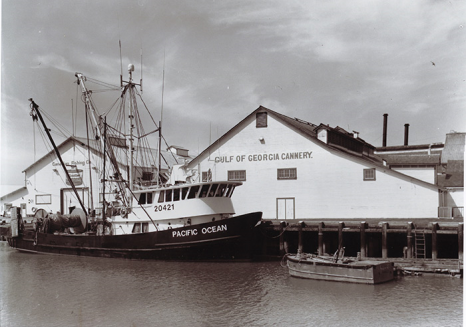
Photo Article: How BC’s Multicultural Fishing Industry Shaped the Province
Fishing has always been a fundamental part of life in British Columbia, particularly near Steveston. Because of the area’s natural abundance and proximity to salmon spawning grounds, Coast Salish First Nations were able to live off the area’s resources since time immemorial. Settlement in coastal areas soon began to swell and in the 1800s, Japanese, Chinese, and European immigrants joined the First Nations in harvesting and processing the catch. Then came the canneries. click here to view the photo’s, read the story 09:40
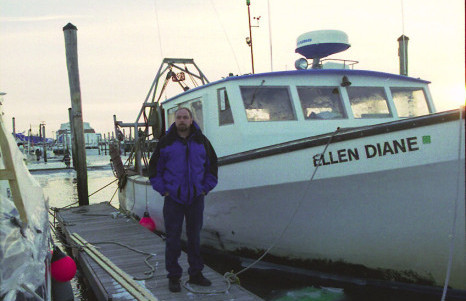
Fisherman, lawyers mull new at-sea monitoring suit
They lost in U.S. District Court in New Hampshire last summer and failed to have that decision overturned in federal appeals court in Boston this spring. Still, New Hampshire groundfisherman David Goethel and his legal team may not be done in their legal challenge of the federal government’s ability to shift the costs of at-sea monitoring to groundfishermen. “We’re still assessing all of our legal options at this point,” said Julie Smith, one of the lawyers from Washington D.C.-based Cause of Action Institute that has represented Goethel and Northeast Fishing Sector 13 in the initial federal lawsuit and appeal. Smith declined to be more specific, but clearly the options are limited: Goethel and his lawyers could swing for the fences and petition the U.S. Supreme Court to hear their case, hoping it would overturn the April decision by the U.S. Court of Appeals upholding the judgment in the original lawsuit filed in U.S. District Court in Concord, New Hampshire. click here to read the story 08:57

Coast Guard rescues 3 fishermen near St. Simons Island
The Coast Guard rescued three fishermen Thursday after their vessel began taking on water near St. Simons Island, Georgia. Coast Guard Sector Charleston Command Center watch standers received a call at 1:54 p.m. from a good Samaritan stating the Lady Vanessa, a 73-foot fishing vessel, was taking on water with three people on board. A Coast Guard Station Brunswick 29-foot Response boat crew launched and two Coast Guard Air Station Savannah MH-65 Dolphin helicopter crews launched at approximately 2:20 p.m. to assist. The helicopter crew arrived on scene at 2:46 p.m., hoisted the three fishermen and transported them to St. Simons Island Airport to awaiting EMS personnel. Click here for more images 08:01






